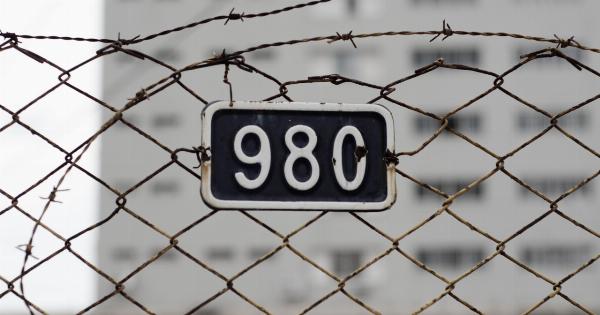In recent years, the issue of animal protection has gained significant attention worldwide. Countries all around the world are taking measures to protect the rights of animals and ensure their welfare. Greece is no exception.
Paschalis Theodorikakos, Greece’s Minister of Rural Development and Food, has been making efforts to strictly enforce animal protection laws in the country.
Ban on animal circuses
One of the significant steps taken by Theodorikakos is the ban on animal circuses. Animal rights activists had long been campaigning for this ban, and finally, in 2019, the Greek government passed a law prohibiting animal circuses in the country.
The law prohibits the use of all animals, including wild and domestic, in circuses. This law is a huge win for animal rights activists, who had been arguing for years that circuses are no place for animals.
Penalties for animal cruelty
Theodorikakos has also been working towards imposing stricter penalties for animal cruelty. Until recently, animal cruelty was considered a minor offence in Greece, with minimal penalties.
However, with Theodorikakos at the helm, the Greek government has worked towards amending the existing laws to impose harsher punishments for those found guilty of animal cruelty. The new laws increase the maximum penalty for animal cruelty offences to three years in prison and a fine of up to €30,000.
These harsher penalties are aimed at deterring people from committing animal cruelty crimes and ensuring that the rights of animals are protected in Greece.
Animal welfare units
Under Theodorikakos, the Greek government has established special animal welfare units to enforce the animal protection laws.
These units comprise of specially trained personnel who investigate cases of animal cruelty and ensure that animal welfare laws are being followed. These units work in collaboration with animal rights organizations to rescue animals from abusive situations and provide them with necessary medical care and rehabilitation.
Improved conditions for farm animals
Theodorikakos has also taken steps towards improving the welfare of farm animals in Greece. The Greek government has introduced standards and guidelines for animal welfare in the farming sector.
These guidelines ensure that the animals are provided with adequate space, shelter, food, and water. The guidelines also ensure that the animals are not subjected to unnecessary suffering or cruel treatment. Theodorikakos has also been working with farmers to educate them about animal welfare and promote ethical farming practices.
Separating pets from commercial animal breeding
Another significant step taken by Theodorikakos is separating pets from commercial animal breeding. In Greece, commercial animal breeders have been breeding dogs and cats in inhumane conditions and selling them to the public.
Theodorikakos has worked towards amending the existing laws to prohibit commercial animal breeding, except for ethical breeders who follow strict guidelines. The new laws aim to reduce the number of stray animals and ensure that pets are bred in ethical conditions.
Improving pet adoption rules
Theodorikakos has also focused on improving pet adoption rules in Greece. The Greek government has introduced guidelines for pet adoption, which ensure that only responsible pet owners are allowed to adopt pets.
The guidelines also ensure that pets are not abandoned or mistreated and are provided with necessary medical care and nutrition. Theodorikakos has been working towards promoting the adoption of pets instead of buying them from commercial breeders, and has been encouraging people to adopt animals from animal shelters.
A step in the right direction
Theodorikakos’ efforts towards animal welfare in Greece have been lauded by animal rights activists worldwide. His dedication towards protecting the rights of animals and ensuring their welfare is a step in the right direction.
With stricter penalties for animal cruelty, an increase in animal welfare units, and improved conditions for farm animals, it seems like Greece is on the right track towards becoming an animal-friendly country.
Conclusion
Theodorikakos’ efforts towards animal welfare in Greece have not gone unnoticed. His drive to impose stricter penalties for animal cruelty and improve conditions for farm animals is commendable.
The implementation of guidelines for pet adoption and separating pets from commercial animal breeding are also significant steps towards reducing the number of stray animals in Greece. Theodorikakos’ actions demonstrate the Greek government’s commitment to animal welfare and protecting the rights of animals.






























